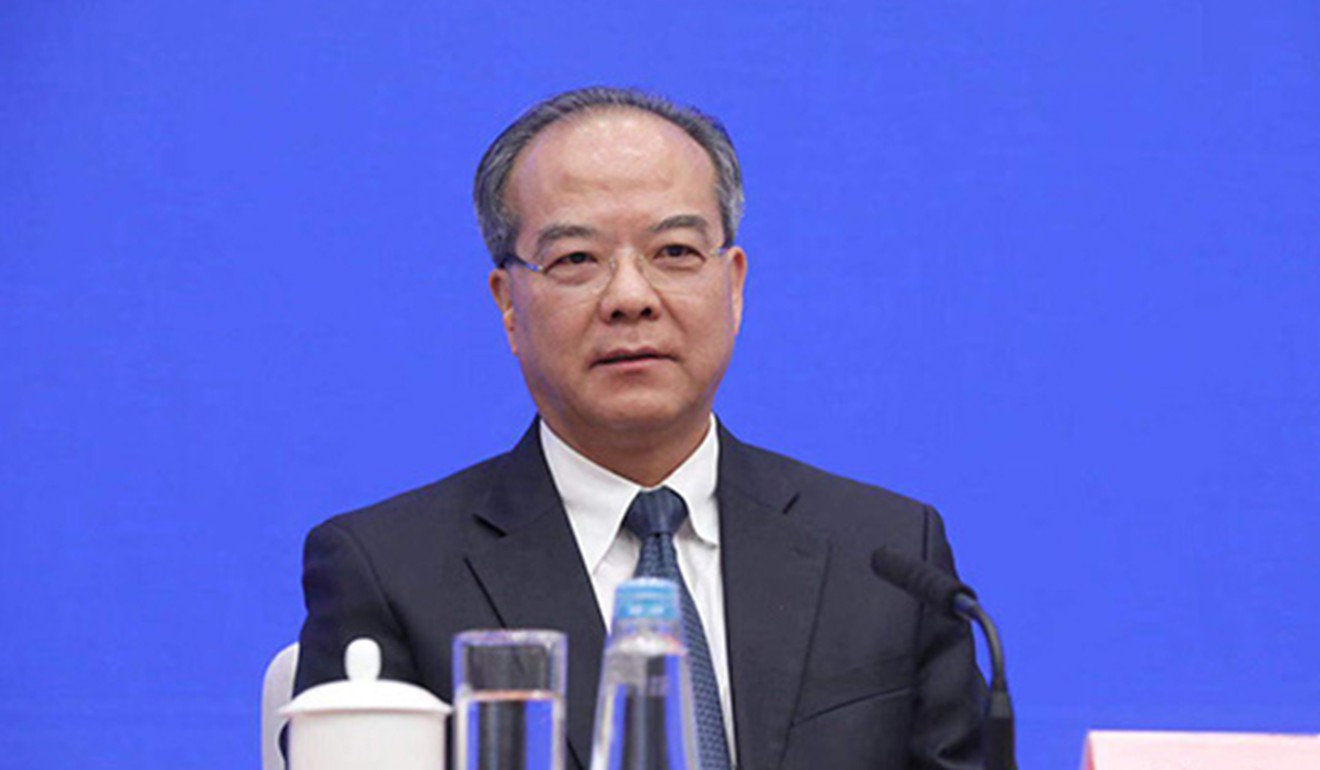
Hong Kong’s top talent will be first to enjoy tax favours in Guangdong, vice-governor Lin Shaochun vows
- Authorities are reviewing policies on accommodation, health care and taxation for Hong Kong and Macau youth working in province
- Tax favour policy will be aimed at high-end workers in advanced manufacturing and professional services

Hong Kong’s top talent in advanced manufacturing and professional services will be the first to enjoy tax favours in Guangdong, the neighbouring province’s vice-governor said on Thursday.
On the sidelines of a press conference in Beijing, Lin Shaochun, the permanent vice-governor of Guangdong, said: “To meet the [tax favour] policy’s requirements, one must be a high-end talent in the industries of advanced manufacturing and advanced services.”

Lin was responding to a follow-up question from the city’s Commercial Radio on a promise to improve tax policies for Hong Kong youth in Guangdong, which he made during the press conference.
“We have been reviewing policies on accommodation, health care and taxation for Hong Kong and Macau youngsters working and starting their own business in Guangdong,” Lin said at the event.
“We will study ways to provide more support,” he added.
The other policies Lin mentioned included fiscal support for Hong Kong and Macau entrepreneurs and provision of one-stop business registration and consultation.
Concerns over a larger tax bill for Hongkongers working across the border arose last summer after the national income tax law was amended by China’s top lawmaking body in September.
Under the new law, Hongkongers living north of the border for more than 183 days a year will be subject to global taxation by mainland authorities from 2019.
The move runs contrary to Beijing’s efforts to realise greater cross-border integration under the “Greater Bay Area” scheme to turn 11 cities in the region, including Hong Kong and Macau, into an innovation and technology centre and a world-class urban cluster by 2035.
The central government has hinted that an exemption is on the way for Hongkongers living and working on the mainland. The Hong Kong government has been communicating with mainland authorities on updating their treaty to avoid double taxation.
On Thursday, Lin said Guangdong has always welcomed young talent from Hong Kong and Macau to start their own businesses in the province.
He disclosed that a total of 12 service platforms would be established across the Greater Bay Area to facilitate young talent from Hong Kong and Macau.
“More than 360 entrepreneurial teams have been set up by Hong Kong and Macau young people in the three special economic zones in Nansha, Qianhai and Hengqin,” Lin said.
“These teams, with nearly 4,000 staff in total, have been working in areas including internet, finance, technology, biological and medical sciences.”
Organised by the State Council’s Information Office, the press conference was also attended by Luo Wen, vice-chairman of the National Development and Reform Commission; Matthew Cheung Kin-chung, Hong Kong’s chief secretary; and Mi Jian, director of Macau’s Policy Research and Regional Development Bureau.
Felix Lio, co-founder of smart skateboard developer Koofy Innovation and a member of Guangdong’s political advisory body, said most young entrepreneurs might stand to gain nothing if the tax favours were limited to high-end talent.
“How many initiators, movers and shakers in the business community have a doctoral degree? Meanwhile, even a graduate with a bachelor’s degree can be entrepreneurial,” Lio said.
How many initiators, movers and shakers in the business community have a doctoral degree?
But Louis Lam, the China South leader of accounting firm PwC’s China income tax services, welcomed the move as both reasonable and promising.
“It’s understandable that tax favours are first offered to top talent in some advanced industries, particularly when China is striving for economic transition,” he said.
Lam added that he would continue to advocate for Hong Kong taxes for Hong Kong people, but said this “could be a good pilot programme to show people the attraction of tax favours”.
He suggested that for Hongkongers working in the nine Guangdong cities in the bay area, a tax reimbursement should be provided to make their actual taxation equal to what they faced in Hong Kong for the same income.